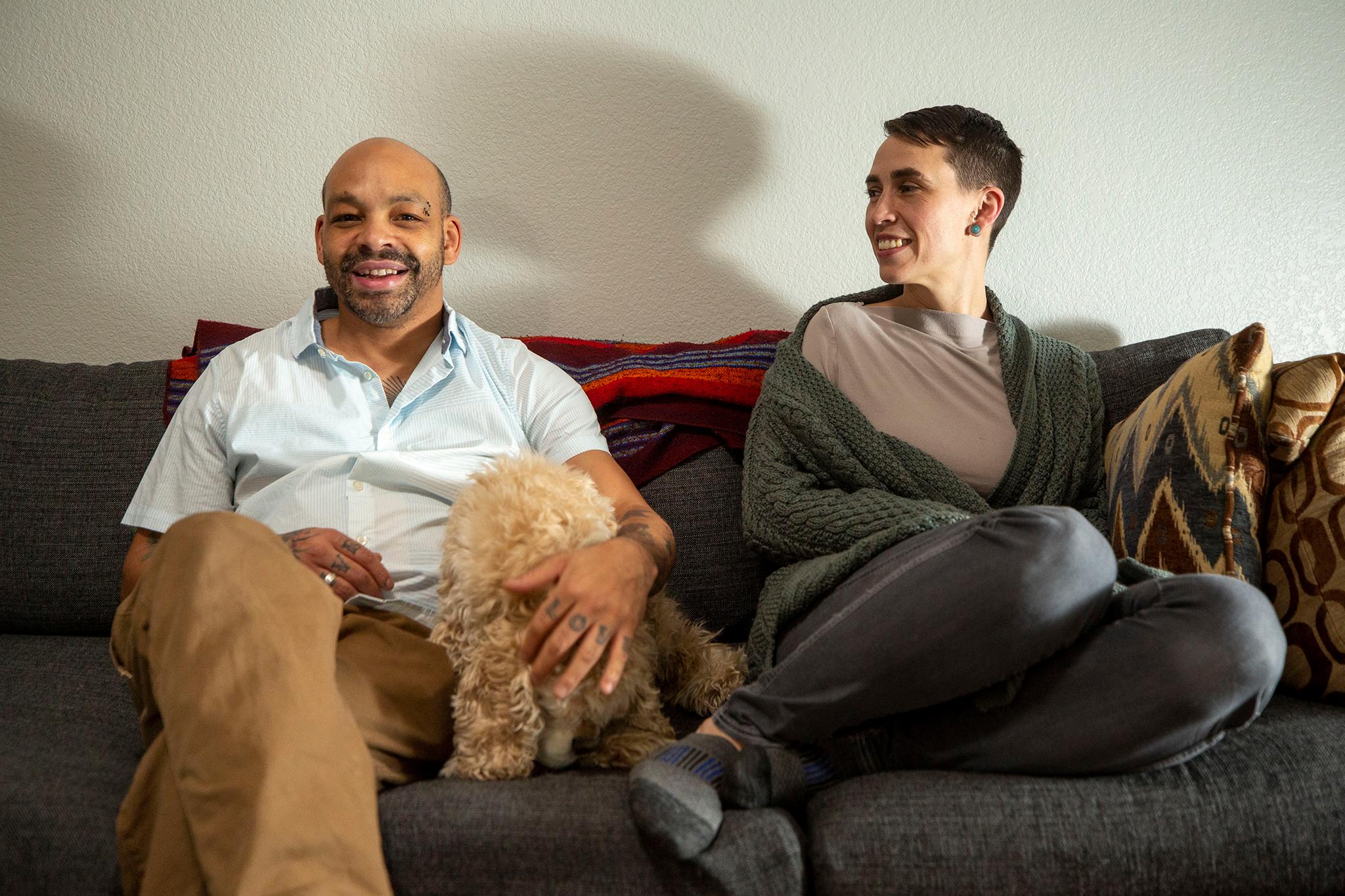In 2016, Omar Reyes and Katie Dunn would walk their dog from their basement rental at Louisiana Avenue and Gaylord Street through southwest Washington Park and plan for their future. Should they spend their lives together, raise a family, buy a home -- maybe even one in the neighborhood?
Reyes, who moved to Denver from the East Coast in 2012, taught at an alternative high school. Dunn, who grew up in Parker and had returned to Colorado after college in the Pacific Northwest, had just finished studying social work in grad school and was beginning her career.
They had both lived their adult lives in rented apartments and houses.
Home prices had been rising since the crash of 2008, but owning somewhere in the city was still conceivable. But a teacher and therapist paying Washington Park prices?
"All the properties around there were multi-million dollar properties, and they're amazingly beautiful," Reyes said. "I think I had an idea that they were kind of beyond our reach at that time, but I didn't realize just how far beyond our reach they were."
On their walks, Reyes eyed a brick house with iron-trim finishing and railings.
"It was just a really beautiful home," Reyes recalled. "And I asked her, 'Wouldn't it be great if we could get our life together enough so that we could live in a neighborhood like this?'"
"We're never gonna be able to live in a neighborhood like this," Dunn replied.
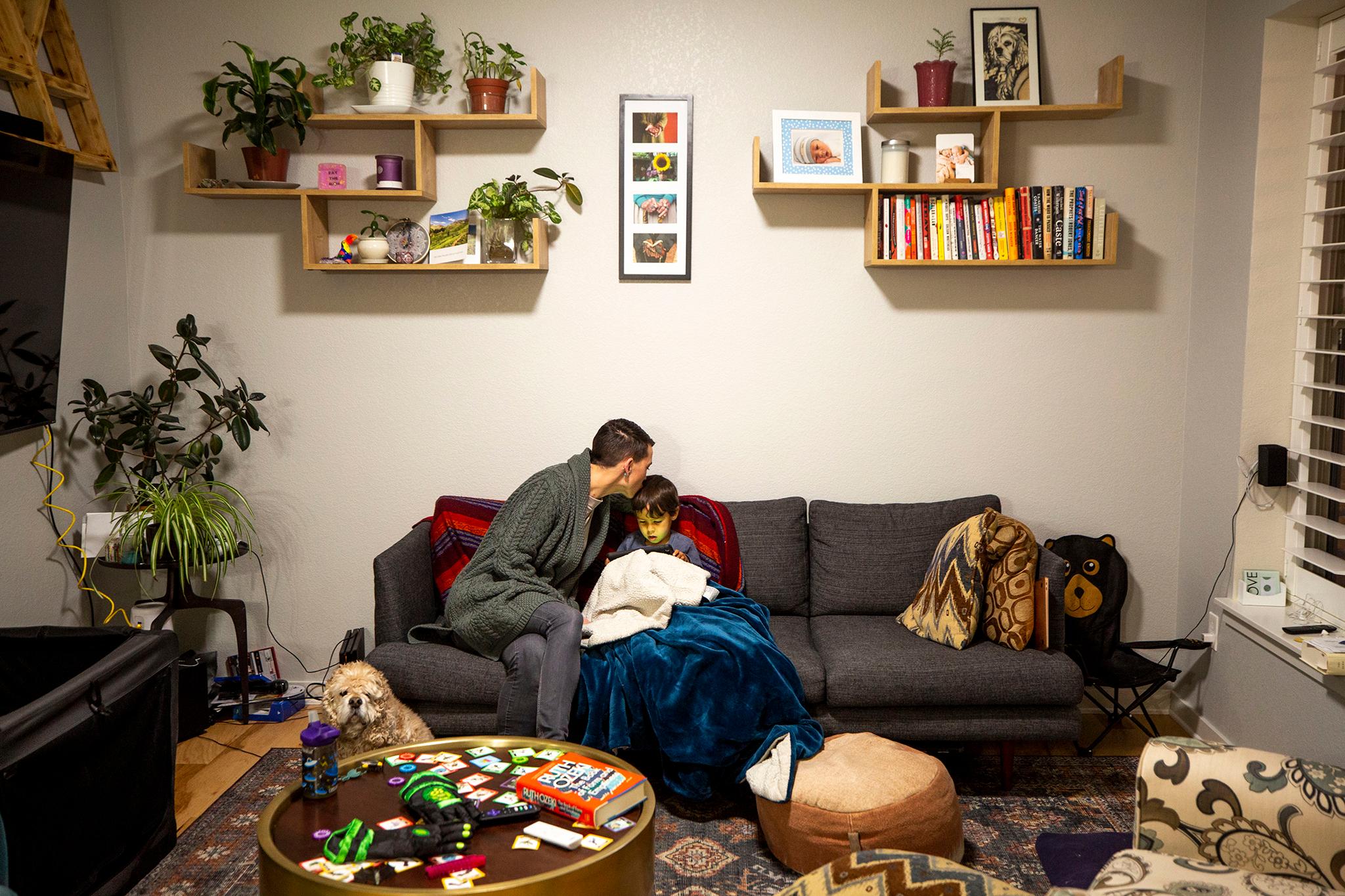
Renting and getting priced out, again and again, was grinding down the couple -- especially when they found out they would be having a kid.
"It's exhausting moving every time," Dunn said. "It's like resettling and then trying to look for somewhere new and trying to find a good fit. And again, like, rents are so high. It just felt absurd and exhausting. And for me, especially having a kid, I would really love to be stable for a while and have him rooted in a neighborhood, a community and a school."
At first, Reyes was unnerved by the idea of buying and settling down. He couldn't stand making landlords wealthier as a renter, but he didn't want to enrich bankers by paying back a mortgage over 30 years.
"I really did not want to even entertain the thought of buying a house and being trapped in that visage of America, trapped in this picture of what people think life is supposed to be," he said. "Meanwhile, it didn't make economic sense and it didn't make political sense in terms of where I was politically at the time."
A mortgage would cost less than renting, which they had been doing successfully. But how could they afford a down payment? He didn't have family wealth, and neither he nor Dunn wanted to ask her parents for money.
The couple decided to move into her family's home in Parker for a few years to save up a down payment. Without paying rent, they could scrape together enough money to buy. But living with parents can be straining for adults, and "that wasn't a sustainable situation," Reyes said.
Reyes had never been the person Dunn's parents imagined her bringing home, he said.
"Her mom always expected her to become a lawyer or a doctor and marry thusly," he said. "And bringing me home -- I'll show you my prison tattoos, piercings. I'm from the East Coast and super radically left -- you know, that wasn't what mom expected. And it just became untenable for us to live into that plan sustainably."
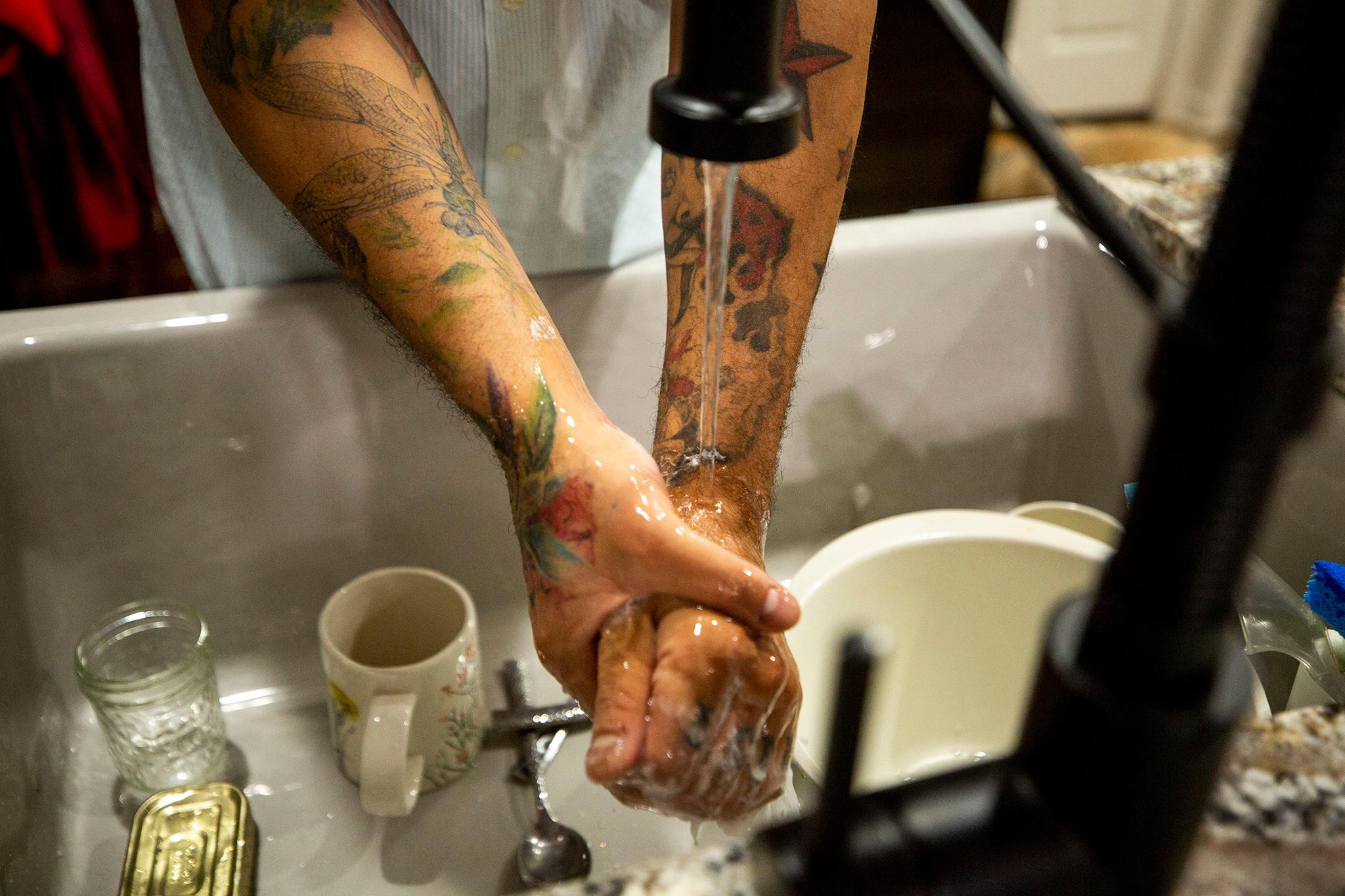
So around 2017, they moved to Aurora, across from the school where Reyes was teaching. They connected with a friend who was living in income-restricted housing and applying to be part of the Denver Affordable Homeownership Program, designed to give low- to moderate-income earners a chance to buy a home.
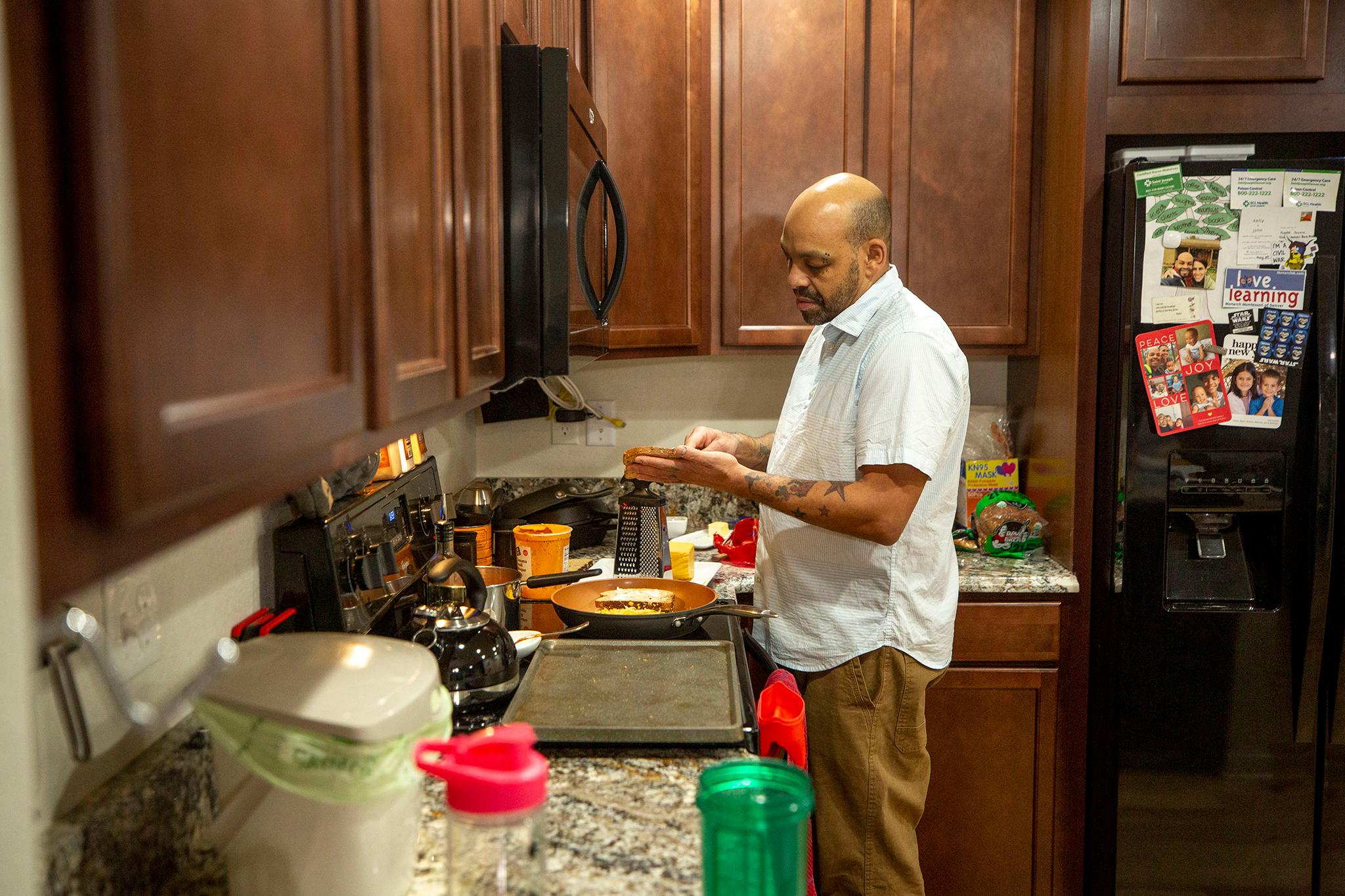
"If it weren't for my partner, whose parents are very well to do, writing me a check for $20,000, then I can't meet the requirements of the program and we don't live in this house," he said.
Reyes is acutely aware that if his partner did not have family wealth, he'd likely never be able to consider buying their Central Park townhome. Even with good credit. Even with a degree. Even with higher education and professional jobs and the ability to pay a mortgage.
Many people of color like him and other groups with less class privilege don't have that chance, he said, and they are left out of the conversation about housing altogether.
The requirements of the Affordable Home Ownership Program, run by the city's Department of Housing Stability, are extensive. People have to fall within certain income limits, pay no more than 35% of their monthly earnings on a mortgage, graduate from a HUD certified homebuying class, and be approved for a loan, among others. Much of that depends on a person's prior access to wealth.
Often, "People of color don't have the generational wealth to meet the obligations and the thresholds of these programs, so they don't even have the opportunity to get into them in the first place," Reyes said. "They don't get a house, because even though they work the same hours as me, and they do a good job, and they take care of their kids and so forth. There's no one to write them a check."
The city's Department of Housing Stability does refer potential homebuyers to down-payment assistance programs like the Colorado Housing Assistance Corporation and MetroDPA. Those also have additional requirements participants must meet.
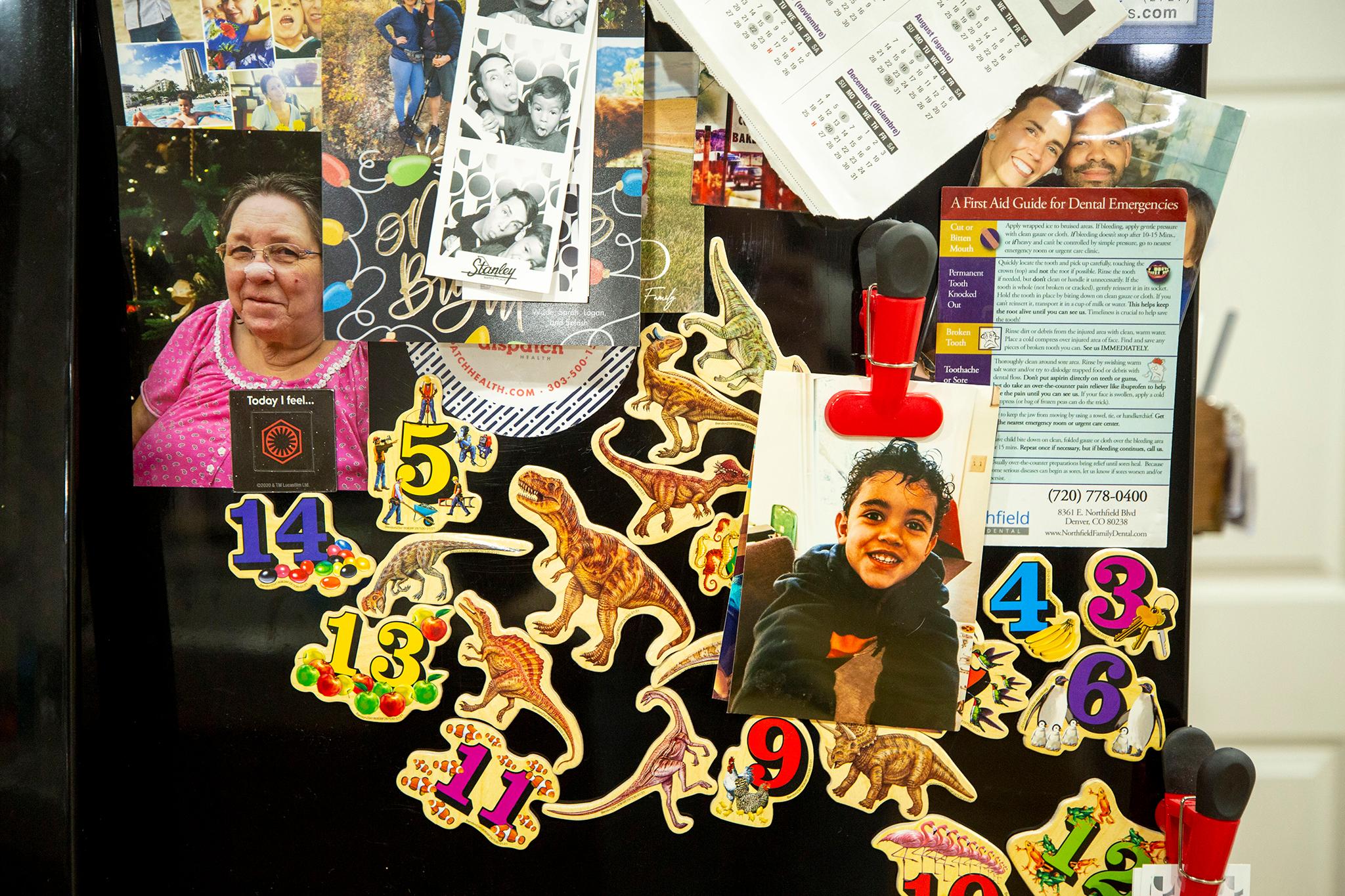
Even after Dunn and Reyes had secured money for a down payment and had signed a contract, the program shifted its income eligibility requirements, and the couple made just over the newly required amount. For a few weeks, they thought they'd be booted from the program, even though they were still not making enough money to buy a market-rate home. But they were allowed to participate, after much anxiety, they said.
Dunn was happy to pay the $1,200 mortgage as they raised their now four-year-old child.
"If we're going to be paying that much every month, I wanted it to be going into something for some kind of equity," she said.
While Reyes is grateful for the home for his family, he's concerned about how the eligibility requirements for affordable homeownership programs like the one he and Dunn used to buy their place block people from participating.
"How many hundreds of 1000s of people of color and people below the nominal poverty line in this area are shut out from programs like that when they're hard-working people?" he asked. "They go to work every single day. They pay market rates for these places in Denver and Aurora and the communities around here... Why is it that these people who are every bit as hard working as professional people ... are not even part of this conversation?"

